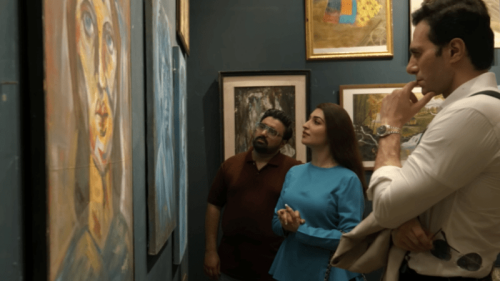ISLAMABAD: The Karachi Metropolitan Corporation (KMC) conceded before the Supreme Court on Thursday that no mosque was constructed as planned at an Islamic centre in Karachi, called Al-Markaz-i-Islami, which now has been converted into a cinema house.
Not satisfied with the report, a three-judge Supreme Court bench, headed by Chief Justice Anwar Zaheer Jamali, however, summoned the KMC administrator and head of the City District Government Karachi to appear in person when the case would be taken up again in the second week of June.
The court also issued notices to Furqan Haider and Mohammad Riaz of the Funrama Arts and Entertainment, which was running cultural events and the cinema house.
The court had taken up a suo motu notice on the application of Karachi-based Jamaat-i-Islami chief Naeemur Rehman Siddiqui, who had alleged that the then Muttahida Qaumi Movement-backed mayor of Karachi Syed Mustafa Kamal had changed the name of the centre in 2008 from Al-Markaz Islami to centre for art and learning and allowed the removal of even the holy scriptures written on the central entrance to the auditorium.
Written in Urdu, the application also alleged that the city government in 2010 set up a Shanze auditorium on the top floor of the building where alleged indecent musical or stage programmes every evening became the order of the day.
Furnished through Additional Advocate General of Sindh Qazi Shaharyar, the KMC report explained that the Quranic verses engraved on the façade of the building/auditorium had not been erased but covered with wooden ply/panaflex by the Cinepax management.
The report further explained that with the advent of 15th San-i-Hijri the idea to construct Al-Markaz-i-Islami with a library, an auditorium and an art gallery for fine arts based on Islamic culture was primarily conceived by then Karachi mayor Abdul Sattar Afghani through a resolution on Dec 4, 1980.
Construction work at the project, measuring 5.5 acres and situated in Federal B Area, was begun in 1981 by the KMC engineering department that continued with fits and starts for one reason or another and lasted over two decades. But it was in 2005-06 when 750 chairs were provided and installed for the auditorium though no mosque was constructed as planned.
A different resolution in June 16, 2003 was adopted unanimously by members of the city council for establishing an independent body for effective succession of Quran-o-Hadith Nabavi Academy. Under the proposal, the academy was to function under the patronage of the city nazim that also had to prepare its by-laws. It was also decided that a board for the purpose would initially be established in the Markaz-i-Islami building.
Again on June 23, 2003, a different resolution was adopted for the establishment of an independent board for a research academy to be operated under a board of governors. But the academy as well as the board remained practically non-functional for which it was originally made and no progression was virtually observed. Thus, the very purpose of Quran-o-Hadith Nabavi Academy and the board was not achieved, the report said.
Since the administrative control of Al-Markaz-e-Islami was with the city government’s community development department, its culture wing suggested to change the name of the building as no programme other than Islamic events could be held or organised at the venue under the emblem of Al-Markaz-i-Islami.
In the meantime, an unsolicited proposal from a renowned artist, chairman and director/producer of Messers Funrama Arts and Entertainment was received showing their intent to utilise the auditorium as a platform for the promotion of arts and cultural activities.
The matter was referred to the Enterprise and Investment Promotion (E&IP) Department of the KMC that deals with the public-private partnership projects.
The department with the approval of the Karachi nazim called for expression of interest through newspapers to run recreational activities such as stage plays, mushairas, films, musical programme or holding seminars in the auditorium under the public-private partnership mode. Later, the project was awarded to the company.
During the proceedings, the court observed that it had no objection if the government established cinema houses or Cinepax but at the site originally meant for mosques was not acceptable.
Published in Dawn, May 20th, 2016












































